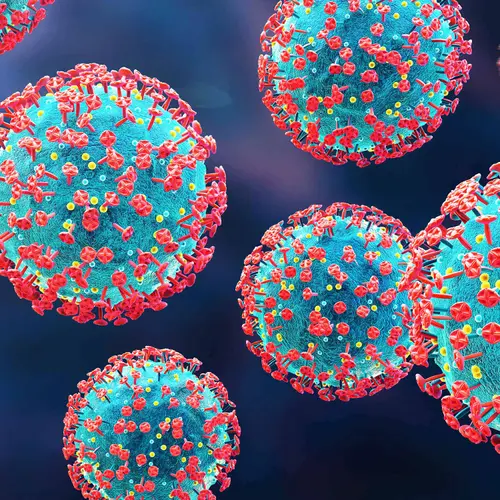Many myths are still around about HIV and AIDS. Get the real story here -- it can help you enjoy a full, healthy life.
Myth 1: Treating HIV will require me to take dozens of pills every day.
Fact: Years ago, people with HIV needed to take a lot of pills. Now, most people starting on HIV treatment only take 1 to 2 pills daily. You may be able to take medicines that combine 2 or 3 drugs in a single pill..
Myth 2: I can wait to start taking medicine for my HIV.
Fact: You should start taking HIV meds right away. Your doctor will talk to you about taking these drugs, which are called “antiretroviral treatment.” They limit the level of HIV virus in your body. This helps protect your immune system and keeps you healthy.
Myth 3: Because I have HIV, I’m going to develop AIDS.
Fact: It’s possible that you’ll develop AIDS, the disease that HIV causes. But it’s also possible you won’t. If you begin taking HIV drugs promptly, they can help protect you from advancing to AIDS. In fact, it is possible that you will never develop AIDS and will achieve a near normal life span if you continue to take the drugs correctly.
Myth 4: If I’m on medication, I can’t spread HIV through sex.
Fact: Even If you are taking medication, you have some risk of passing the virus to a sex partner. However, if you take drugs properly over time the level of the virus in your blood may fall so low that your doctor will call it “undetectable.” At that point, experts believe that as long as you continue to take your medication there is little to no risk of transmission. However, remember that using condoms, in addition to protecting your partner, will also protect you from getting other strains of HIV and other sexually transmitted infections.
Myth 5: I should avoid exercise since I have HIV.
Fact: Exercise is a good way to protect your health when you have HIV. It can:
- Prevent fatigue
- Improve your appetite
- Lower your stress
- Maintain your muscles
- Protect your bones
Aim for 30 to 45 minutes of exercise a day. Get both aerobic and strength-training exercises.
Myth 6: I’m not going to live long enough to need to worry about other diseases.
Fact: Today, many people with HIV are living long lives. If you keep the virus under control with HIV medicine, you may live for many decades. In fact, those who adhere to their HIV treatments and maintain a healthy lifestyle can have the same life expectancy as someone who is not infected. But you may have a higher chance of problems including cancer, heart disease, and kidney disease. So follow the usual steps for good health:
- Take your medicines as prescribed
- Eat a healthy diet.
- Exercise.
- Don't smoke.
Some HIV medicines have side effects that can cause diarrhea and nausea. Talk to your doctor about whether your medicines should be taken with or without food, and about any side effects you might have. Don’t stop your HIV medicines without talking with your doctor first. Also, tell your doctor about any other medicines you’re taking and any other health problems you have. HIV drugs can change how your other medicines work. They can also make controlling other health problems, like diabetes, more difficult.
Myth 7: Now that I have HIV, I can’t have kids.
Fact: If you’re a man with HIV, you may still be able to safely father a child. If you’re a woman, you may still be able to safely become pregnant. Doctors can help you take steps to lower -- or remove -- the chance that you’ll pass the virus to your partner during conception. If you're pregnant, your doctor will give you certain HIV drugs to protect you and your baby. The baby may also be given medication after birth.

